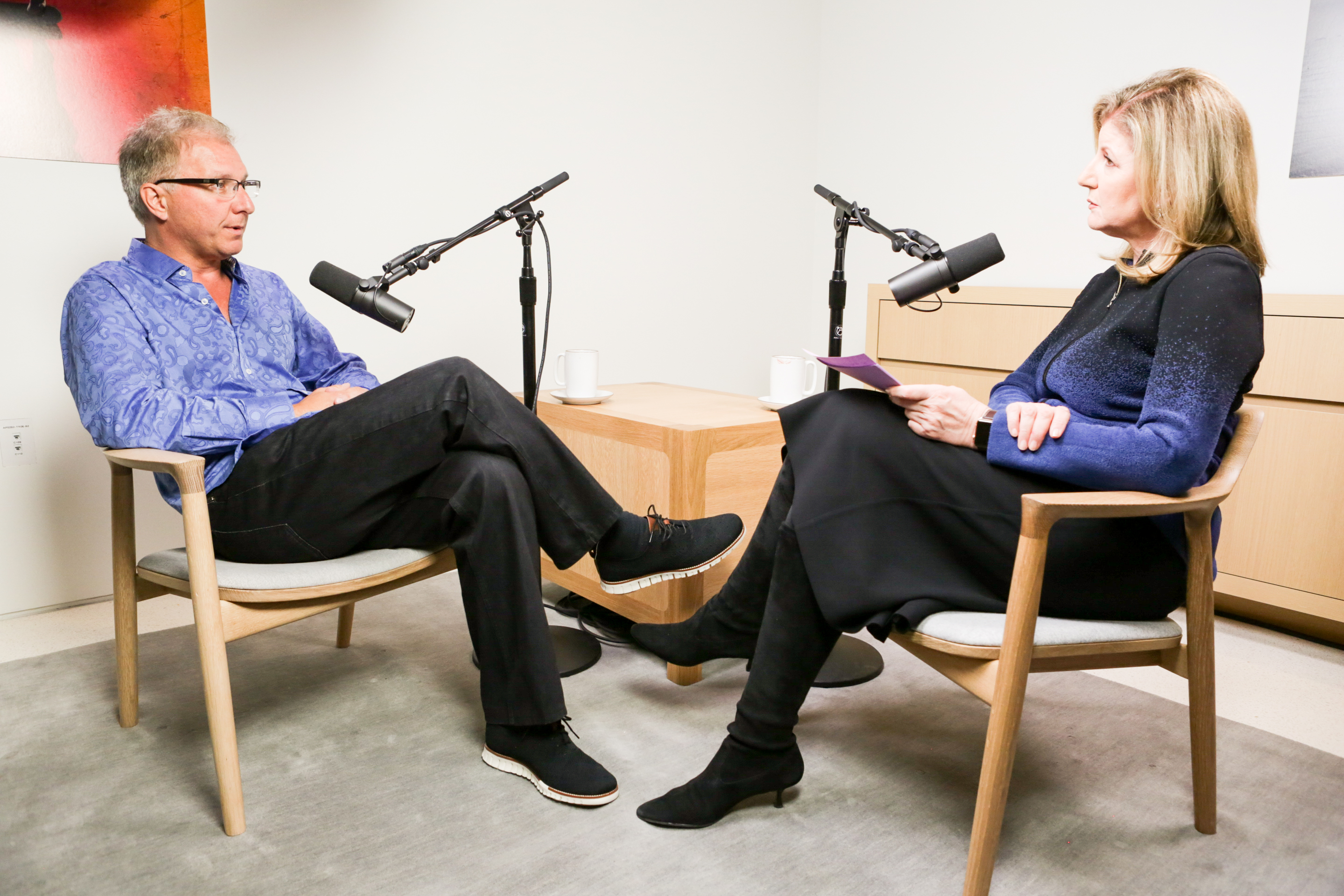Several tech companies are now pushing users to spend less time on their devices, and Apple’s new iOS 12 features mark one of the most significant efforts to limit user screen time. But when the company’s VP of Product Marketing, Greg Joswiak, sat down with Arianna Huffington on the latest episode of the Thrive Global Podcast, in partnership with iHeartRadio and Sleep Number, he explained how the company uses science to actually benefit from its non-traditional business strategy.
“Our business model doesn’t depend on how much you use your devices,” Joswiak tells Huffington. “We want you to have a great experience.” Joswiak says that by putting customer satisfaction first, Apple has been able to create tools that change the way users interact with technology, and the world at large. “They’re incredibly powerful, wonderful tools,” he explains. “They changed the way we entertain, how we shop, how we order our transportation, how we stay in touch with one another, and how we use the camera to capture the moments of our lives and share them with one another.”
Joswiak also says that the company’s products have become so useful because they’re based on the science behind the human attention span – and Huffington agrees. “What I love is that this is based on the latest science,” she says. “Limiting interruptions and distractions during the day is profoundly important. We have all the science that shows how it affects attention span.”
Because Apple’s business model is based on the science behind our human instincts, the company can benefit from people spending less time on their products. But Joswiak explains that by placing the user first and thinking about how to improve their lives, the company has been able to truly change the way we use technology. “We bring out features that we think are going to help people,” Joswiak says. “It’s not reactionary; it’s what we do.”
To find out more, listen to the full conversation on iHeartRadio, here. You can also listen to the Thrive Global podcast internationally for free on iTunes.


